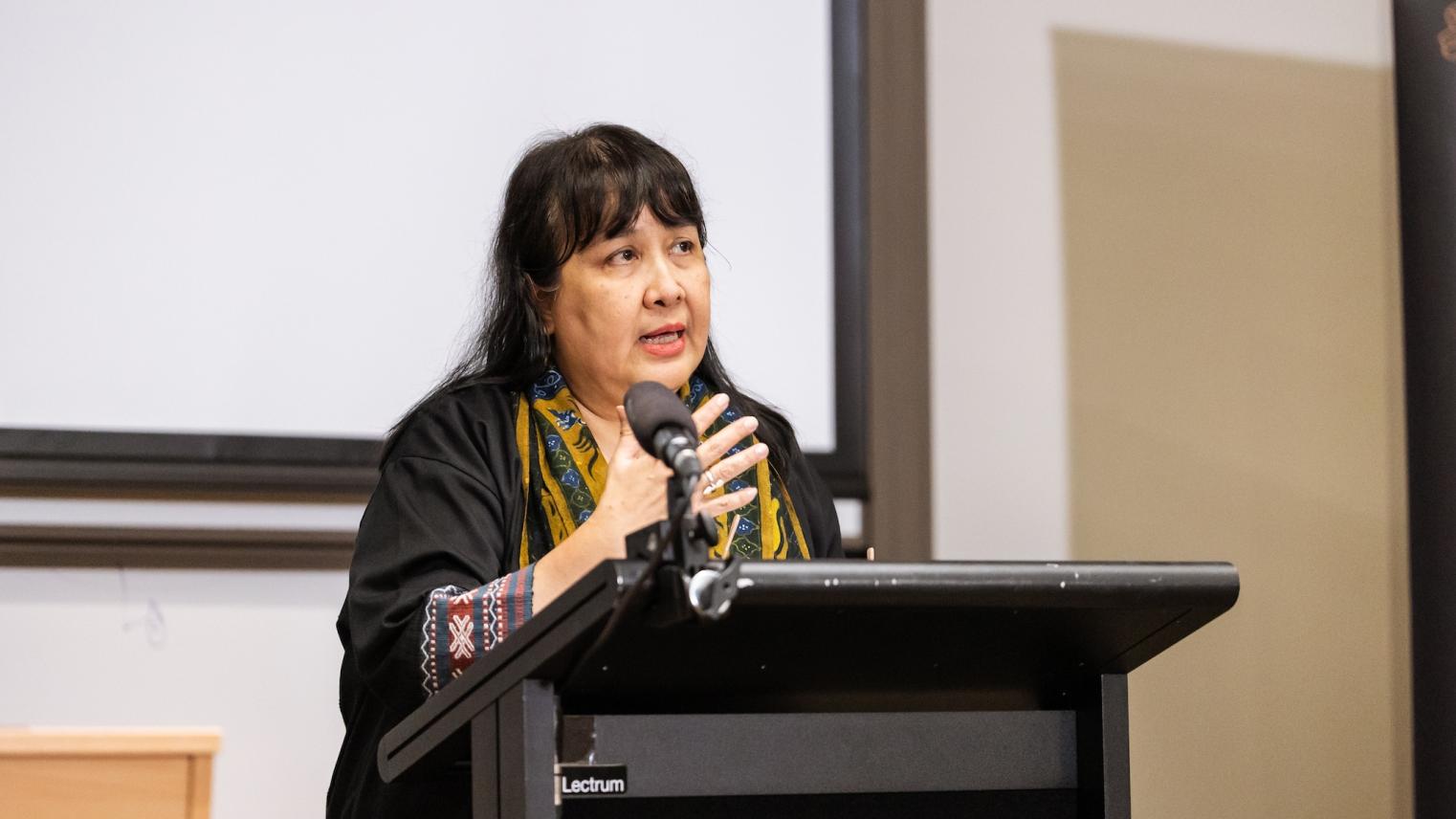Exploring ‘The Question of Truth’ in the Tony & Yohanni Johns Lecture 2024

At the 2024 Tony and Yohanni Johns Lecture, acclaimed Indonesian novelist, Leila Chudori, reflected on the construction of history in Indonesia. She spoke in front of a full-house of over 100 people.
In her lecture 'The Question of Truth,' Leila Salikha Chudori explored fragile public trust toward Indonesian history, attributing this distrust to the government's reconstruction of past human rights violations. She highlighted the unique challenges faced by those born in the 1960s, whom Leila dubbed the 'ahistorical generation,' because they were ‘force-fed’ a singular government-approved narrative. Consequently, Indonesian history often feels contrived, she explained, narrated from the viewpoint of 'heroes' rather than victims.
Chudori uses personal experience as the starting points to delve into her writing, aiming to make historical narratives more personal. Leila’s novel, Pulang, is set during the fall of Suharto. Her second novel, Laut Bercerita, became particularly influential among Indonesia's youth, enabling them to explore the traumatic events of the 1998 movement and the subsequent reforms.
In her lecture, Chudori emphasised that 1998 should have motivated Indonesians to redefine their national identity. However, the opportunity was missed. The early reform era saw some positive changes like increased press freedom and the emergence of memoirs from former political prisoners.
But, despite Suharto's ousting, Chudori observed that many of the institutions and norms he established during his 32-year rule have persisted. This enduring influence, Chudori argues, stems from a collective reluctance to confront the darker chapters of the past. The attitudes and structures from Suharto's regime continue to be perpetuated by the 'ahistorical generation.'
In her lecture, Leila reflected on the popularity of Laut Bercerita among the younger generation. She feels young Indonesians appreciate the book not as a lecture on history, but as a shared experience with the characters, particularly through vivid, expansive storytelling. This is mirrored in her earlier work, Pulang, where themes of food and the taste of Indonesian spices are used to evoke the longing for the homeland for an exiled political prisoner.
Leila’s work powerfully demonstrates how personal narratives can bridge the gap between historical events and individual understanding. By focusing on the lived experiences of her characters, she allows younger generations to connect with and reflect upon Indonesia's complex past in a deeply personal way. This approach not only enlightens but also encourages a more empathetic and nuanced engagement with history, fostering a better appreciation of how past events shape present realities.
Image - Luka Vertessey, ANU College of Asia and the Pacific
Author - Arumdriya Putri, Program and Communication Officer, ANU Indonesia Institute